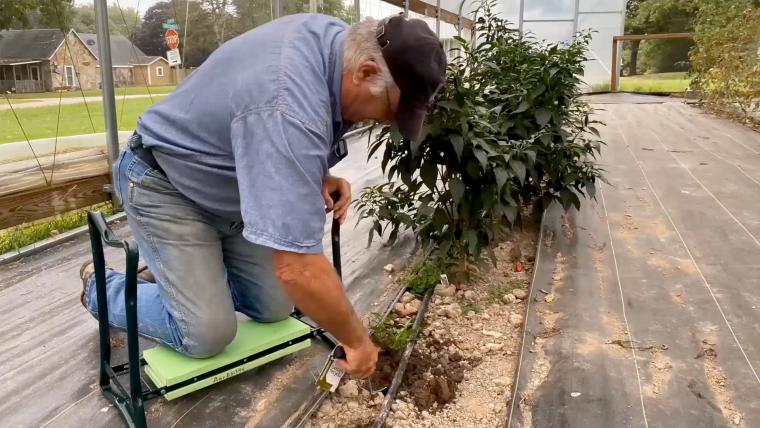COLUMBIA, Mo. – If you have a gardener on your holiday gift list, consider user-friendly tools that suit their ability and age.
When choosing tools, gardeners and gift-givers should consider ergonomics, the science of fitting equipment to create less stress on the body, says Brenda Schreck, University of Missouri Extension specialist in livestock and youth development.
“Tools and techniques designed with ergonomics in mind can prevent muscle and joint pain and improve the joy of gardening,” Schreck says.
At the recent Pixels of Production online conference for women in agriculture, Schreck, along with MU Extension health and safety specialist Karen Funkenbusch and Lincoln University farm outreach worker David Middleton, told how ergonomic tools can make work easier and reduce stress.
“It’s a lot of physical work to garden,” Middleton says. Smart gardening takes planning, good posture and balance.
Stretch and loosen up before gardening. Plant your feet to face your work instead of twisting toward it. Keep elbows close to your body and tucked in. Bring the garden close to you—up to waist level if possible—to reduce back strain, Schreck says. Many people with health issues find that raised beds, container gardens and trellis gardens are good options.
Reduce the workload by using a child’s wagon or cart to move supplies from one part of the garden to another. For watering, choose two shorter hoses so that you do not have to carry one heavier, bulkier one.
Many low-cost garden kneelers can be flipped to serve as seats. If you do not have a kneeler, use an old rug or towel to pad your knees.
“You don’t have to buy the most expensive tool to get an ergonomic tool,” says Schreck. Before buying a tool, practice using it in the store to ensure a comfortable fit.
Choose hand tools with a thumb indicator to keep the hand in a neutral position and reduce pressure on wrists and forearms. The shaft should be no longer than the distance from the tip of your middle finger to the bottom of your palm. The diameter of the handle should be no bigger than that of a circle made with your thumb and index finger.
The size of handles on shovels and rakes makes a big difference in comfort. Extra-long handles or auxiliary handles provide more leverage, and the lighter the tool, the better.
Gloves with padded palms and reinforced fingertips protect hands and improve grip. They should be flexible, fit snugly and have double-stitched seams and wrist closures.
Many tools can be modified with items commonly found at home. Wrapping baseball tape around wooden handles of shovels and rakes can improve grip. A 5-gallon bucket turned upside down serves as a handy seat for picking produce.
Keep tools clean and sharp. Dull tools are not safe and cause fatigue.
The garden is a great place to reduce stress, says Funkenbusch, who is state director for the North Central Farm and Ranch Stress Center. When designing your garden area, use decorative benches to improve the appearance and create a comfortable place to rest.
Finally, take frequent breaks and take time to enjoy the color and scents of your garden, says Funkenbusch.
For more information on gardening tools, visit AgrAbility. Find stress-related resources on the Show Me Strong Farm Families Facebook page or from the Missouri Department of Mental Health.
